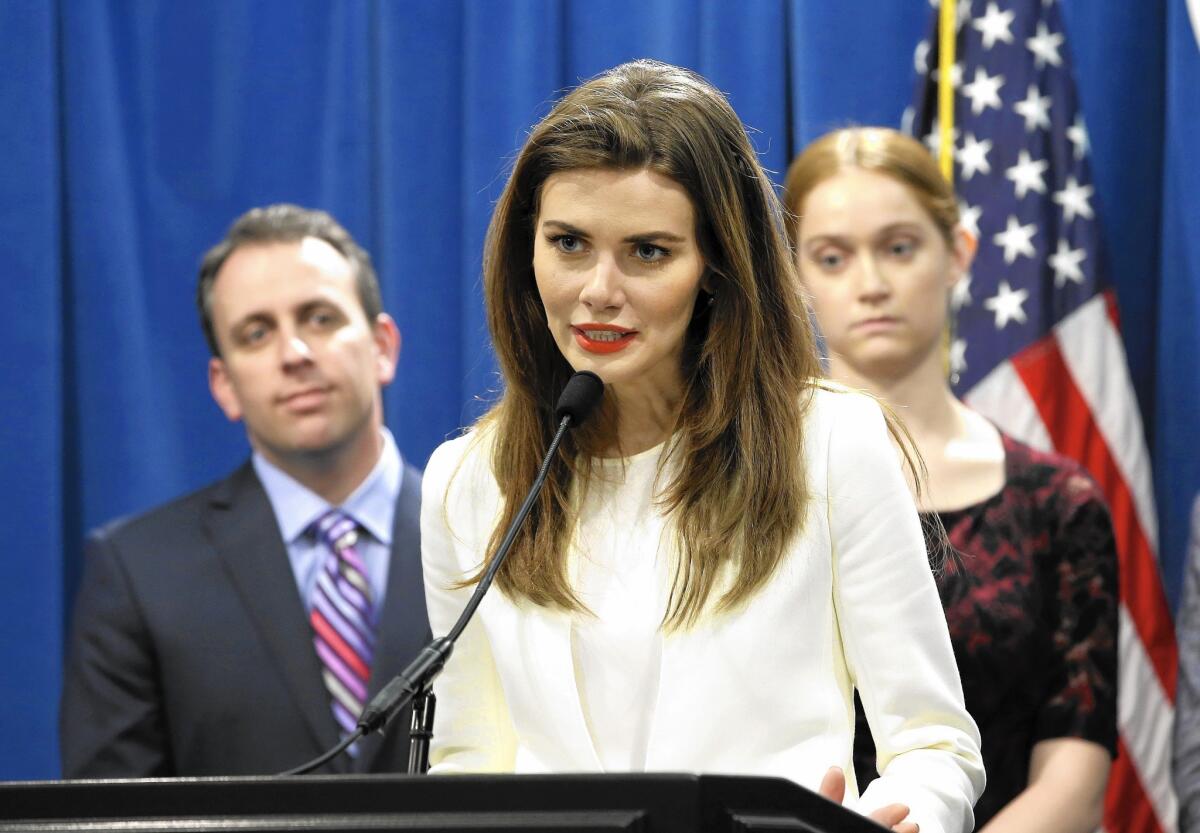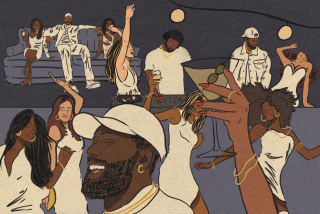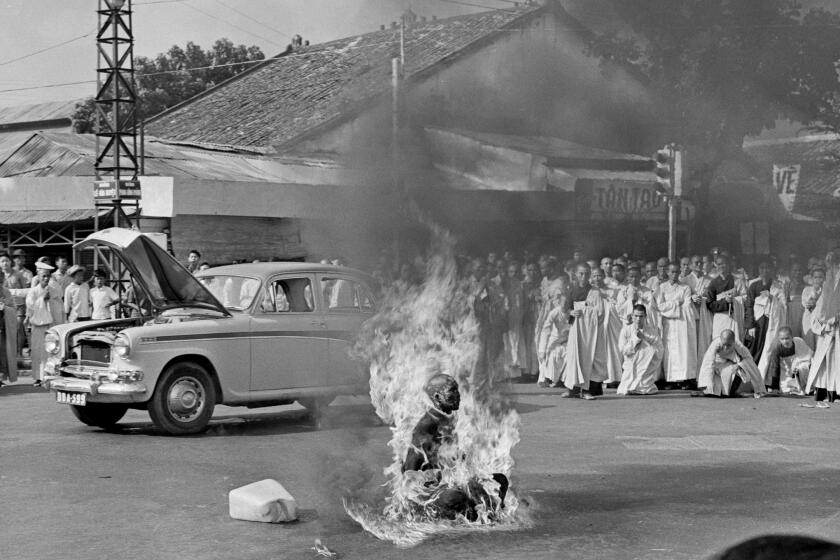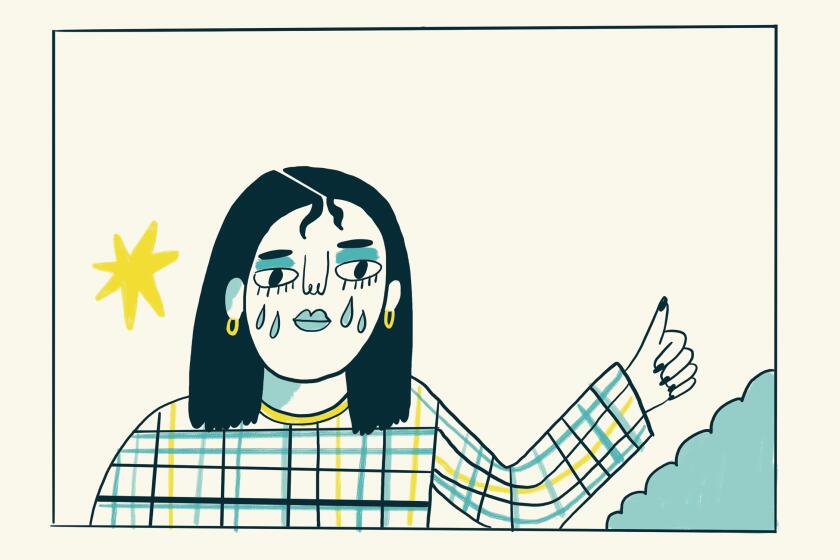Op-Ed: Why models need labor protections

Former fashion model Nikki DuBose discusses some of the health issues models face during a news conference in Sacramento, Calif. on April 6.
The work of a fashion model is the epitome of glamour — for about two minutes on the runway. The rest of the job can be rife with horrors including coerced starvation, sexual harassment and abuse, and wage theft.
Although models enjoy prominent status in our culture, their labor is mostly invisible and their concerns about working conditions tend to be trivialized and dismissed. But current and former models are beginning to push back against exploitation with class-action lawsuits and proposed labor-rights legislation.
For me, this issue is personal. When I started modeling at 14, I was unprepared for the adult pressures I faced, like shoots with photographers who put me on the spot to take off all my clothes and “go-sees” with men who made sexual demands. When I raised my concerns to the president of one agency, he suggested I was being uptight and didn’t see the problem. To this day the industry has no policy of requiring advance consent for casting sessions or jobs involving nudity; at the same time, because models usually are treated as independent contractors, they are unprotected by workplace sexual harassment laws.
The pressure to be thin ... is just the start. Models have accused fashion industry powerbrokers of all manner of sexual abuse.
With the majority beginning their careers between the ages of 13 and 16, young models need more protection. Most are just gangly teenage girls when they sign an exclusive — often deeply unfavorable — contract with a modeling agency. Even at this early age, when their bodies are still developing, they’re often told by the agency to lose weight; models have been dropped for gaining just centimeters on their hips. Staying thin at any cost can have life-threatening consequences: models become sick and some have died from anorexia complications — in one case, just hours after stepping off a runway.
The pressure to be thin, however, is just the start. Models have accused fashion industry powerbrokers of all manner of sexual abuse. In 2008, the fashion designer Anand Jon Alexander was found guilty of rape and multiple counts assault against aspiring 14- to 21-year-old models. In her 2011 memoir, “Beauty, Disrupted,” 1990s supermodel Carre Otis disclosed that her former agent raped her repeatedly when she was 17. More recently, numerous models have spoken out against photographer Terry Richardson’s well-documented inappropriate sexual demands. And yet agencies continue to send their young talent to Richardson and top magazines hire him.
For most models, the work isn’t lucrative, leaving them particularly vulnerable to those who hold the keys to more jobs. Model-turned-mental-health advocate Nikki DuBose has said she was pressured to sleep with the director of her modeling agency: “When I did I worked more, and when I didn’t the work stopped coming.” In a legal deposition related to a sexual assault case, Bill Cosby admitted that he asked a modeling agent to connect him with women who were new in town and “financially not doing well.”
Because agencies insist that models are independent contractors, not employees, there is not even the guarantee of a minimum wage. Some jobs pay in “trade,” meaning clothes, not money. Many models experience outright wage theft, even from top agencies. A class-
action suit filed in February in New York accuses six agencies of pocketing royalty payments and ginning up expenses to deduct from models’ checks.
Some models even become indebted to their agency and are then induced to take unwanted assignments, including overseas. They are sent to dinners arranged by their agencies where they are expected to chat and flirt with certain men. In the New York lawsuit, Melissa Baker claims that beyond financial misdeeds, her former agency advised her to dump her then-boyfriend, who was serving in the military in Afghanistan, and “replace him with an A-list celebrity or professional athlete.”
It is difficult to make any complaint, let alone report illegal labor conditions, without losing your job. The fashion industry is always ready to cast off last year’s models just as easily it does clothes, and unlike other performers in the U.S., models have no union protection.
Agencies have fought to maintain the independent contractor arrangement, which conveniently shifts the responsibility for ensuring a safe and ethical work environment away from them or their clients. Instead 15-year-old girls are left to fend for themselves.
Recently, California Assemblyman Marc Levine introduced Assembly Bill 2539, which would extend labor rights and health and safety protections to this mostly young, female workforce.
The bill does three things. It states that models are employees, not independent contractors, and due all workplace protections including against sexual harassment. It requires employers to adopt an occupational health and safety standard to protect models from developing eating disorders. And it clarifies that modeling agencies must be licensed and regulated as talent agencies, to help ensure that models receive the same protections as actors and other talent.
If California takes this step, we can hope that other states, like New York, will follow.
The fashion industry is a superficial business that too often provokes superficial criticisms. And yet apparel is a $300-billion-a-year industry, and thousands of young men and women work to model these clothes on runways, in photo shoots, in catalogs and online. They deserve to be kept safe, paid fairly and have their concerns heard.
Sara Ziff, a former fashion model, is a graduate student at Harvard and the founding director of the advocacy group Model Alliance.
Follow the Opinion section on Twitter @latimesopinion and Facebook
MORE FROM THE OPINION SECTION:
Drought is the new normal. We need less shaming and more incentivizing
Will Obamacare end ‘job lock’?
More to Read
A cure for the common opinion
Get thought-provoking perspectives with our weekly newsletter.
You may occasionally receive promotional content from the Los Angeles Times.






